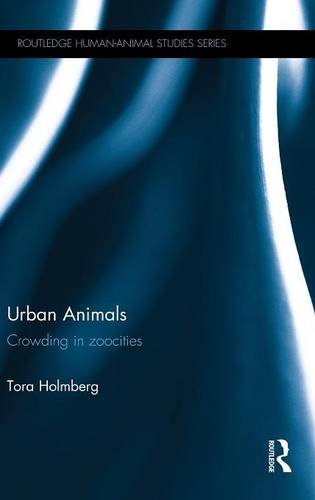

Most ebook files are in PDF format, so you can easily read them using various software such as Foxit Reader or directly on the Google Chrome browser.
Some ebook files are released by publishers in other formats such as .awz, .mobi, .epub, .fb2, etc. You may need to install specific software to read these formats on mobile/PC, such as Calibre.
Please read the tutorial at this link: https://ebookbell.com/faq
We offer FREE conversion to the popular formats you request; however, this may take some time. Therefore, right after payment, please email us, and we will try to provide the service as quickly as possible.
For some exceptional file formats or broken links (if any), please refrain from opening any disputes. Instead, email us first, and we will try to assist within a maximum of 6 hours.
EbookBell Team

4.0
96 reviewsThe city includes opportunities as well as constraints for humans and other animals alike. Urban animals are often subjected to complaints; they transgress geographical, legal as and cultural ordering systems, while roaming the city in what is often perceived as uncontrolled ways. But they are also objects of care, conservation practices and bio-political interventions. What then, are the "more-than-human" experiences of living in a city? What does it mean to consider spatial formations and urban politics from the perspective of human/animal relations?
This book draws on a number of case studies to explore urban controversies around human/animal relations, in particular companion animals: free ranging dogs, homeless and feral cats, urban animal hoarding and "crazy cat ladies". The book explores ‘zoocities’, the theoretical framework in which animal studies meet urban studies, resulting in a reframing of urban relations and space. Through the expansion of urban theories beyond the human, and the resuscitation of sociological theories through animal studies literature, the book seeks to uncover the phenomenon of ‘humanimal crowding’, both as threats to be policed, and as potentially subversive. In this book, a number of urban controversies and crowding technologies are analysed, finally pointing at alternative modes of trans-species urban politics through the promises of humanimal crowding - of proximity and collective agency. The exclusion of animals may be an urban ideology, aiming at social order, but close attention to the level of practice reveals a much more diverse, disordered, and perhaps disturbing experience.